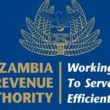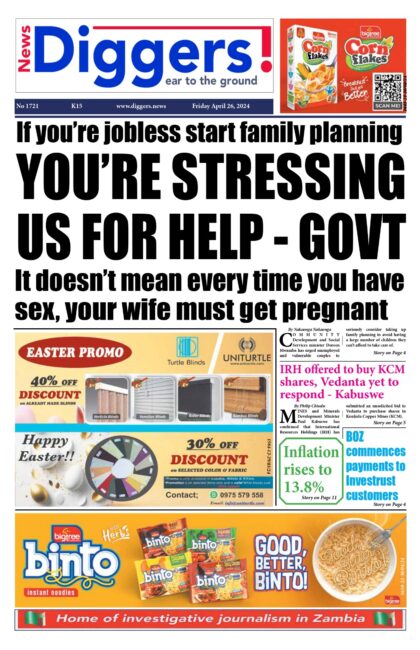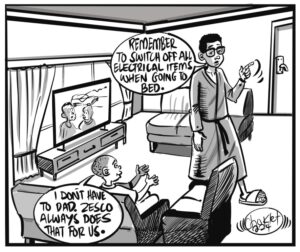Zambia Revenue Authority ZRA Commissioner General Kingsley Chanda yesterday struggled to explain why the Authority’s tax online system did not waive off over K3 billion in tax principal liabilities that had been paid despite the Tax Amnesty being in force at the time.
This came to light after Chanda and Secretary to the Treasury Fredson Yamba appeared before the parliamentary Public Accounts Committee (PAC) to respond to audit queries for the financial year ended December 31, 2017.
During the deliberations, an officer from the Office of the Auditor General revealed that the ZRA online system failed to configure tax amnesty on penalties as well as interests on tax online.
“Let me say something chair, the interaction between ZRA and the office of the Auditor General started in November last year and ended on 22nd August this year. And during that time, what you may see as being part of the Tax Amnesty is nothing. You can see in the system there is nothing showing, we follow up this outstanding money, there is nothing [from the time] when this programme was established, that these are the specific things, which ZRA can show you that this is specifically for Tax Amnesty. But we have to follow-up whatever money owed that is why we are able to look at those files. But when you want to make that distinction between ordinary tax and all those taxes targeted under the Tax Amnesty, that is the record we are saying was not provided,” the auditors said.
And the auditors revealed that Chanda was never available whenever he was needed for queries at the time of the audits, hence some issues remained outstanding.
“And you see all queries issued are raised to the Commissioner General. I must say that during the period that we met either at the Head Office or other offices where we met trying to resolve these issues, the Commissioner General was busy. [He] was not able to meet the auditors and we assumed that the officers he assigned were able to give us this information [and] that is why this information is reflected like this. But the information that is indicating that we looked at those files, yes, we look at all files to ensure that all those who owe are followed, but if you want to make that distinction between ordinary owing money and those targeted by that programme ‘Tax Amnesty,’ it is not there. That is why we have said failure to configure tax amnesty on penalty and…on the tax online system.’ I think that’s the position,” they said.
But in response, Chanda explained that he was not available because he was attending to other national duties.
“Chair, if you look at the audit queries themselves, they will tell a story. When our tax payers came forward for tax amnesty, and they could not pay taxes immediately, we signed time-to-pay agreements. The auditors have raised an issue here that we were failing to enforce those time-to-pay agreements. All those time-to-pay agreements were signed on the basis of the Tax Amnesty. So, if the auditors didn’t want to distinguish between the Tax Amnesty, time-to-pay agreements just because they were not on the system at the time, then I have a problem with that. There are a lot of living examples of people that they could have followed who actually came forward during the amnesty and paid their taxes, and our revenue performance showed that. However, in terms of the availability, I had a national assignment on the day that we had the final exit meeting and the acting commissioner general that time attended,” Chanda explained.
Meanwhile, committee member Victor Lumayi queried why the Authority recorded negative results on vehicle, fuel, and airtime levies, while it recorded positive on tourism.
Chanda in response said the government policy of paying tax in some instances using vouchers was affecting the collection of tax.
“If you look at the quantum’s involved, the targets for the fuel levy, the targets for the motor vehicle compared to tourism, the difference is so huge. Fuel levy, for example, was affected by government policy to import petroleum products, and as you are aware, government can pay tax sometimes using government vouchers, but that is not money that you [will] see in the Bank of Zambia and depending on the situation, the government is addressing, for example, if government decides to avert a fuel shortage in the country, they normally issue a Statutory Instrument to waive all the taxes on fuel so that it’s imported quickly and lands cheaply. So, you have all those things that affects collection of taxes on fuel levy,” Chanda said.
“Then for motor vehicles, motor vehicle is the function of the volumes. If in a given year you do not have as many importations of the motor vehicles into the country, all the taxes relating to motor vehicles will be affected. So, you find that when you follow the actual statistics of numbers that were imported during the period under review, you will find that there was a downward trend both in terms of the volumes and in terms of the value. So, once you have that, the tax yield on that particular product, in this case motor vehicles, will obviously be lower than anticipated.”
And Chanda said to Authority wants to eliminate the refunds component on the Value Added Tax (VAT), but maintain the principal of tax consumption.
“VAT is a consumption tax. We believe, as a commission, that the best way to tax our population is through consumption. And progressively, all other factors remaining equal, you can actually create room to even start looking at reducing the person income taxes. If you are able to tax people’s consumption, then you increase their disposable income, it gives the population the freedom to use their income in whichever way they want. If they decide to drink alcohol, you have excise duty on alcohol, which is as high as 60 per cent [and] that is their choice. If they decide to just eat nshima, it’s tax free, there is no VAT that is fined. So, we want to eliminate the refund component on VAT, but the principal of tax consumption will still remain under the new tax. But the idea of the Treasury having the budget of not less than K800 million every month to refund the business, we think it is not appropriate for our economy and we think we cannot afford it. So, we want a tax where once government collects through ZRA, it is government money and government can spend it without having to create another line to refund the tax,” said Chanda.
The Parliamentary Public Accounts Committee (PAC) is chaired by Muchinga constituency MMD member of parliament Howard Kunda.











